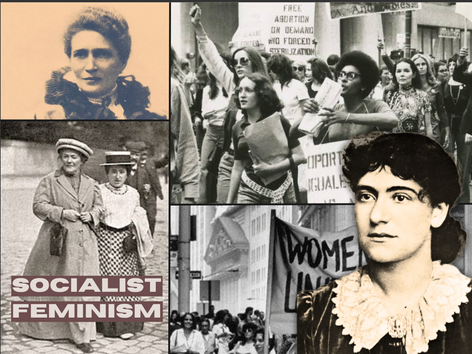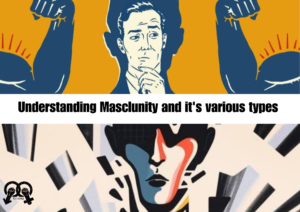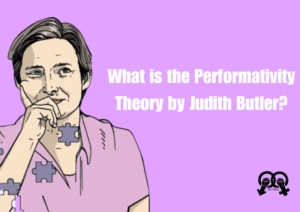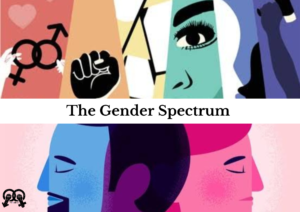Do you think all feminists are the same?
Are you finding it difficult to navigate through feminist texts?
Well, look no further.
In this edition of mans-plaining, we break down Marxist and Socialist Feminism
To say gender relations are independent of class relations is to ignore how history works.
Iris Marion Young, 1981
Roots
While it is possible to distinguish between Marxist and socialist feminist thought, it is quite difficult to do so. Over the years, the differences between these two schools of thought are more a matter of emphasis than of substance.
Classical Marxist feminists work within the concepts laid out by Marx, Engels, and Lenin. They regard classism rather than sexism as the fundamental cause of women’s oppression. In contrast, socialist feminists are not certain that classism is women’s worst or only enemy.
When Socialist feminists observed that women’s lives under communism, particularly during the Stalin years (1929–1953), were no better than women’s lives under capitalism and women moving into the productive workplace had not made them men’s equals either there or at home, socialist feminists decided to move beyond class as the sole category for understanding women’s subordination to men. Increasingly, they tried to understand women’s subordination in a coherent and systematic way that integrates class and sex, as well as other aspects of identity such as race/ethnicity and sexual orientation.

Marxists Concepts

Before getting into Marxist feminism, it is imperative to lay out some Marxist concepts regarding the
economy, society, and politics. Marxist believe that human beings’ ability to produce the means of our
subsistence is what distinguishes us from animals. Productive activities such as farming, fishing, and
building help us meet our basic needs, making humans what they are.
For Marx, these material forces such as production and reproduction govern our lives. He used the term historical materialism to argue that ‘The mode of production of material life conditions the general process of social, political, and intellectual life. It is not the consciousness of men that determines their existence, but their social existence that determines their consciousness. (Marx, 1967,791)’ This means that it is the production that shapes men and women who create a society that in turn shapes men and women. For example, people in the UK think in certain ways about equality, liberty, and freedom because they have a capitalist mode of production.
Marxist Economic Theory
For Marxists, capitalism is not only a system of exchange relations but also one of power relations.
Viewed in terms of a system of exchange, capitalism describes a market society in which everything
including one’s labour power has a price, and every transaction is based on an equal exchange. But when capitalism is viewed as a system of power relations, all transactions in the capitalist market society are exploitative. For Marx, a commodity includes not just the direct labour performed by the worker but also the indirect labour stored in workers’ artificial appendages—the tools and machines made by the direct labour of their predecessors.
Since all commodities are priced at exactly the labour needed to produce them and since workers’ labour power is a commodity that can be bought and sold, the value of workers’ labour power is exactly the cost of whatever it takes (food, clothing, shelter) to maintain them. However, there is a difference between what employers pay workers for their mere capacity to work (labour power) and the value that workers actually create when they put their work capacity to use in producing commodities. Marx termed this difference “surplus value,”. This is where the employers incur profit.
For Marx, capitalism is exploitative because it only compensates workers for their labour and not for the energy and intelligence they transfer into the commodity they produce.
One might ask how employers obtain these profits when both wages and hours are fixed.? Marx explains that the monopoly that employers hold over the means of production such as the land, factories, and tools is something that employees lack. Therefore they have to choose between being exploited or having no work at all. Another reason why employers are able to exploit workers is through capitalist ideology that Marx calls the Fetishisation of commodities. It is when workers convince themselves that even though their money is very hard-earned, there is nothing inherently wrong with the specific exchange relationships into which they have entered, because life, is simply one colossal system of exchange relations.
Marxist Social Theory
Marx believed that a capitalist economy has enough contradictions within it to overwhelm and
disintegrate from within. Split into two major groups the poor property less employed (Ploretariat) and the rich employers (bourgeois). When these haves and the have-nots, both become conscious of themselves as classes, said Marx, a class struggle ensues and ultimately topples the system that produced them. Class consciousness is the opposite of false consciousness, a state of mind that delays the creation and maintenance of true class unity. False consciousness causes exploited people to believe they are as free to act and speak as their exploiters are. Because Marxist and socialist feminists wish to view women as a collectivity, Marxist teachings on class and class consciousness play a significant role in Marxist and socialist feminist thought. Much debate within the Marxist and socialist feminist community has centred on the following question:
Do women per se constitute a class? Given that some women are wives, daughters, friends, and lovers of bourgeois men, whereas other women are the wives, daughters, friends, and lovers of proletarian men, it would appear women do not constitute a single class in the strict Marxist sense.
Yet, bourgeois and proletarian women’s domestic experiences, for example, may bear enough similarities to motivate Thus, many Marxist and socialist feminists believe women can gain consciousness of themselves as a class of workers by insisting, for example, that domestic work be recognised as real work, that is productive work.
Marxist Ideas of Women’s Oppression
Evelyn Reed’s “Women: Caste, Class, or Oppressed Sex?” stressed that the same capitalist economic
forces and social relations that “brought about the oppression of one class by another, one race by
another, and one nation by another” also brought about the oppression of one sex by another, Reed
contested the view that women’s oppression as women is the worst kind of oppression for all women.
In fact, she believed that bourgeoise women were capable of oppressing both proletariat men and women. Friedrich Engels in his iconic work ‘ Origins of the Family, Private Property and the State” attributed women’s oppression to the institution of private property. He argued that in order to keep the private property in the family, women had to be monogamous, serve their husbands and produce children. (who would inherit their property). In his estimation, proletariat women were not oppressed because they do have private property to be passed on. For Engels women’s participation in the labour force would force society to treat women equally, viewing them all as workers. Women would also be economically independent of men. After the Marxist revolution abolishes capitalism, women would be free from both capitalism and men. Engels was aware of the double load that women would have to bear, however, saw it as a stepping stone to becoming men’s equals in the revolutionary struggle.
Capital and private property were seen as the cause of women’s oppression as it was the cause of workers’ oppression. Eli Zeretsky, writing a century after Engels agrees with feminist critique of Engels when they argued that patriarchy predates capitalist society. However, he points to the vehement increase in sexism in capitalist societies. He attributes this to the differentiation between wage and domestic labour, where the latter is not valued. He argued that capitalism oppresses men by forcing them to perform wage labour and oppresses women by excluding them from performing wage labour. Not only this, but capitalism also forces women to perform domestic labour in order to produce and nurture workers (men) that join the workforce. Therefore this domestic labour is not for men but for capitalism. It is a capitalist view that has deemed domestic work as “private” that creates the illusion that women are working for men when in reality they work for capital. Therefore men and women should fight to unite this ‘production divide” created by capitalism to create a humane production that meets all needs. Instead of fighting with each, men and women must fight capitalism.
While Engels attributes oppression to private property, Zeretsky sees women’s private labour as the roots cause. Both romanticise the preindustrial family and community that equally enjoyed all aspects of life. Heidi Hartman has pointed out that the ‘woman’s question” among Marxists and socialists is in terms of women’s relation to capitalism, as an economic system that must be overthrown. For Hartman, this was never a feminist question that sees women’s oppression in relation to men (Hartman, 1979, 2).
Marxist and Socialist Feminist Ideas

Juliet Mitchell in Women’s Estate (1970) argued that women’s oppression is rooted in their position both in the productive and reproductive systems. (sexuality, family, and children) In observing women’s status in both of these fields, Mitchell found a lack of significant progress in both. She noted that even though women are just as physically and psychologically qualified for high-paying, jobs as men are, employers continued to confine women to low-paying jobs. Similarly, despite the availability of safe, effective, and inexpensive reproduction-controlling technologies, women often failed or refused to use them. This continued the chain of maternity-family-absence from ‘production’- sexism. She also noted that women’s entry into the productive workforce did not relieve them of their household duties In fact, the pressure to be good mothers and perfect homemakers was higher than ever. Mitchell speculated that patriarchal ideology, which views women as lovers, wives, and mothers rather than as workers, is almost equally responsible for women’s position in society as capitalist economics is.
She claimed that even if a Marxist revolution destroyed the family as an economic unit, it would not
translate into women being men’s equals.
Iris Marion Young cites the persisting sexism in socialist and communist societies to highlight the
inadequacy of using class as a major category of analysis of women’s oppression. This is because
exploitation under capitalism is not gender neutral, it is gender blind. She emphasised the need for a
a gender-sighted category such as the ‘sexual division of labour’.The sexual division of labour is one that is attentive to the characteristics of the people who perform the labour. While a class analysis only sees the roles of the bourgeoisie and the proletariat, the sexual division of labour pays attention to who instructs and who follows, who does stimulating work, who does the repetitive work, etc. Therefore only this can explain why men give instruction and women follow, and why men do stimulating work and women take on repetitive tasks.
She argued that capitalism is aware of its workers’ gender. Because countless unemployed workers are
necessary to keep wages low and to meet demands for increased supplies of goods and services,
capitalism has an implicit to determine who will constitute its primary, employed workforce and who will act as its secondary, unemployed workforce. Here men are the primary workers because patriarchy dictates that women are absolutely needed to do housework, freeing men to do the ‘productive’ work.
At the same time, women’s entry into the productive workforce also does not mean much as they
experience patriarchy under capitalism in the form of being paid less, sexual harassment, and going home to start their second shift. (domestic work). Therefore patriarchy cannot be seen as separate from
capitalism just because it proceeds it. Every economic system is intertwined with its gender system and to ignore this is to ignore history. The gender pay gap and whether housework should be paid or not are some of the key issues taken up by Marxist and Socialist feminists
Critique
The critique of Marxist and socialist feminism interestingly came from feminists who earlier saw the role of economic production as a possible explanation for women’s oppression. In other words, after observing that women’s entry into the workplace did not do much to change sexist attitudes and practices, feminists such as Juliet Mitchell herself claimed that sexist attitudes will not change until there is a change in society’s psyche. Therefore psychoanalysis was seen as essential to the explanation of gendered subjectivities.
References
- Karl Marx, Capital (New York: International Publishers, 1967), vol. 3, p. 791.Schmitt, Introduction to Marx and Engels, p. 14.
- Alison M. Jaggar, Feminist Politics and Human Nature (Totowa, N.J.: Rowman & Allanheld, 1983), pp. 114–115 and 308.
- Iris Marion Young, “Beyond the Unhappy Marriage: A Critique of the Dual Systems Theory,” in Women and Revolution, ed. Lydia Sargent (Boston: South End Press, 1981), p. 58
- Capital & Class: Sage Journals
Naomi Joy Yadav is the gender and communications officer at Ashray Trust, an NGO working against human trafficking and gender inequality. She holds a Masters degree in Gender studies from Ambedkar University Delhi. Her interests range from makeup to music to sports and “taking the fun out of everything” by looking at all these from a gendered lens





